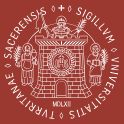Introduction
The University of Sassari is a public comprehensive university located in Sardinia, Italy. It was founded in 1562 and is one of the oldest universities in Italy. It offers a variety of educational courses based on a wide range of degree courses, interdisciplinary teaching and high-standard scientific research.
Overview
Student size: about 13,000 students, which has grown in recent years to more than 18,000 in total.
Number of faculty and staff: about 700 teachers and a certain number of administrative staff.
History
In 1558, Alessio Fontana entrusted his legacy to the Sassari Municipal Government to establish a school. In the same year, the first batch of Jesuit missionaries arrived in Sassari.
In 1562, the school began to officially offer courses.
In 1617, King Philip III of Spain approved the Royal University Charter of the Jesuit College, and the University of Sassari officially became a statutory public university.
Establishment time
Courses were offered in 1562 and it was officially established as a statutory public university in 1617.
School strength
Faculty: has More than 760 teachers, including many experts and scholars with profound attainments in their respective fields, in addition to more than 40 faculty members working in various colleges, 196 visiting professors, and a strong and diverse faculty.
Scientific research level: The school has more than 40 interdisciplinary research centers, with world-leading technologies in grape breeding, grape and wine equipment research, etc. Its scientific research results have a certain influence internationally, and it actively carries out cooperative research projects with other institutions and enterprises to promote the transformation and application of scientific research results.
International cooperation: It has established cooperative relations with about 500 universities participating in the Erasmus program, providing students with rich international exchange opportunities. At the same time, it also cooperates with international organizations such as TreeAndHumanKnot to expand students' international vision and practical experience.
Institutional nature
Public university.
Educational philosophy
Focus on cultivating students' comprehensive literacy and interdisciplinary abilities, and is committed to combining traditional academic knowledge with modern practical skills, so that students can adapt to the ever-changing social needs, succeed in their respective professional fields, and contribute to social development.
Key laboratories and disciplines
Key laboratories: The university has a number of research centers and laboratories, such as laboratories in the field of grape and wine research, which provide students and researchers with advanced scientific research facilities and practical platforms.
Advantageous disciplines: Agriculture, architecture, chemistry and pharmacy, law, veterinary medicine, biomedicine, business and economics, medicine and surgery, humanities and sociology, history, anthropology and education, etc. have outstanding performance. Among them, the School of Life Sciences, where the Grape and Wine Engineering major is located, is at the world's leading level in grape breeding, grape and wine equipment research, etc. The law major has trained many well-known jurists and politicians, and the medical major has also trained a large number of excellent medical talents for the local and surrounding areas.
Faculty
According to the adjustment in 2012, the University of Sassari now has 10 departments, including agriculture, architecture, chemistry and pharmacy, law, veterinary medicine, biomedicine, business and economics, medicine and surgery, humanities and sociology, history, anthropology and education, etc., covering a wide range of disciplines.
Ranking
Rated as the best in Italy by the Censis Institute in 2009-2010 "Medium-sized" university, but fell to sixth place in the best universities in Italy in 2012.
Ranked 223rd in the Times Higher Education World University Rankings.
Expenses
Tuition fees: Tuition fees at Italian public universities are relatively low, with undergraduate tuition fees of about 1000-2000 euros/year and master's tuition fees of about 1500-3000 euros/year. The specific tuition fees may vary depending on the major.
Living expenses: Students' monthly living expenses are about 1000-1500 euros, including accommodation, food, transportation, etc.
Campus Environment
Geographic location: The main campus of the school is located in Sassari, northern Sardinia, Italy. The city is the second largest city in Sardinia and has an important economic, political and cultural status. It has a population of about 130,000. The city is located on a limestone plateau, about ten kilometers from the sea, 225 meters above sea level, and has a mild and pleasant climate.
Teaching facilities: The school has modern teaching facilities such as libraries, laboratories, multimedia classrooms, etc., which provide strong support for students' learning and research. Its 24 libraries and more than 40 learning centers provide students with rich learning resources.
Campus buildings: The campus architecture is unique in style, integrating historical and modern elements. The school's botanical garden is also a highlight of the campus, providing students and faculty with a beautiful place for leisure and study.
-
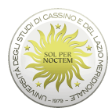
University of Cassino and Southern Lazio
-

University of Campania Luigi Vanvitelli
-
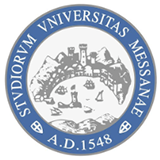
University of Messina
-

Libera Universita degli Studi Maria SS. Assunta di Roma (LUMSA)
-

University of Bari Aldo Moro
-
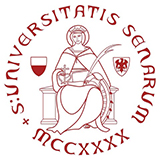
University of Siena
-
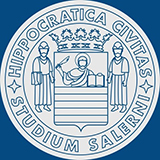
University of Salerno
-
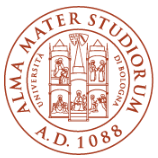
University of Bologna
-
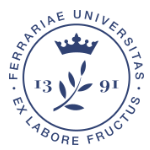
University of Ferrara
-
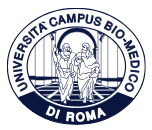
Campus Bio-Medico University of Rome
-

Mesoamerican University
-

Istmo University
-

Mariano Galvez University of Guatemala
-

Regional University of Guatemala
-

Galileo University
-

Francisco Marroquín University
-

Rafael Landívar University
-

University of the Valley of Guatemala
-

University of San Carlos of Guatemala
-

Technological Institute of Tlaxcala Plateau
-

Golfo University
-

Technological University of South Sonora
-

Technological University of Huejotzingo
-

Tizimín Institute of Technology
-

Chilpancingo Institute of Technology

